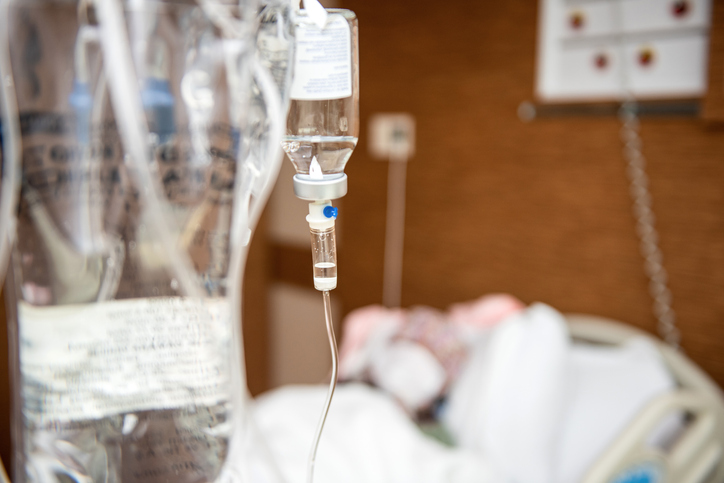Observational study suggests that an early one-week treatment at the first sign of viral reactivation may achieve clinical benefits and avoid antiviral toxicity.
A team from the University of California Irvine Health wondered whether the benefits of early recognition and preemptive antiviral therapy for HHV-6 reactivation might be justified if the patients were treated early with a short course of foscarnet, when the virus was first detected at a viral load as low as 188 copies/ml.
The team reviewed the outcomes of cases in which just one week of daily outpatient foscarnet (60-90 mg/kg) was initiated preemptively at the first evidence of HHV-6 reactivation in 10 patients following HCT. Most patients had acute leukemia. Clinical course was followed, and repeated measurements of HHV-6 viral load were made, for a median duration of 440 days.
All patients achieved engraftment, none had secondary graft failure, and none developed any of the severe adverse clinical outcomes linked to HHV-6, such as encephalitis. In addition, none of the patients had foscarnet toxicity. Remarkably, HHV-6 DNA was undetectable in all patients after 1 week of treatment.
This is the first study of preemptive short course of antiviral therapy with treatment given at a low viral load. In the previous two trials of preemptive therapy, the threshold for treatment for ganciclovir was 10,000 copies/ml (Ogata 2008) and 500 copies (Ishiyama 2011) and the treatment duration in both was a minimum of 21 days.
Importantly, the once daily foscarnet treatment of 90 mg/kg/day was well tolerated compared to renal toxicity often encountered with foscarnet at higher doses and longer treatment duration. European guidelines and Japanese guidelines both recommend 180 mg/kg/day for HHV-6 encephalitis, with a duration of three weeks (Handley 2022) but past trials of prophylaxis have been at 50-90 mg/kg/day. Foscarnet, cannot be used in patients with poor kidney function and renal toxicity is exacerbated with longer durations of therapy (Trifillis 1993).
There have only been three small trials of foscarnet prophylaxis in HCT transplant patients. Two trials in Japan (at 50 and 90 mg/kg/day) did not prevent the rate of encephalitis but reduced severity and sequelae (Ogata 2018). More recently, a trial of 25 cord blood transplant patients at the University of Minnesota in the US found that foscarnet prophylaxis (90 mg/kg/day) improved both engraftment survival rate (Jurdi 2020).
Many adverse clinical manifestations of HHV-6 reactivation following HCT have been documented, including encephalitis, pneumonitis and death and HHV-6 is the most common cause of encephalitis in HCT (Toomey 2023).
The authors note that a much larger and randomized trial of such therapy would be necessary to provide convincing evidence of a clinical benefit from such a short-course antiviral regimen administered promptly upon detecting reactivation of HHV-6. While severe clinical complications linked to HHV-6 encephalitis post-HCT are infrequent, they can be fatal and frequently leave patients with permanent cognitive and motor sequelae. Given the possible efficacy of this short-course, early stage regimen in durably suppressing viral reactivation, and the lack of toxicity from the antiviral, a large, randomized trial might well be warranted.
Read the full article: Vittayawacharin 2023

